
Pinduoduo: China’s hottest online shopping startup
Pinduoduo is an online shopping platform that gives users discounts for purchasing in groups. Founded by former Google employee Colin Huang, it's been China's third most popular shopping app since July 2017.
(Abacus is a unit of the South China Morning Post, which is owned by Alibaba -- the owner of Taobao.)
The company, founded by an ex-Googler, listed on the Nasdaq in July 2018 to much fanfare, raising more than US$1.6 billion. Still unprofitable right now, Pinduoduo has grown by targeting price-conscious shoppers in lower-tier cities -- but some of them say the chase for a good deal can, at times, lead to disappointing purchases.
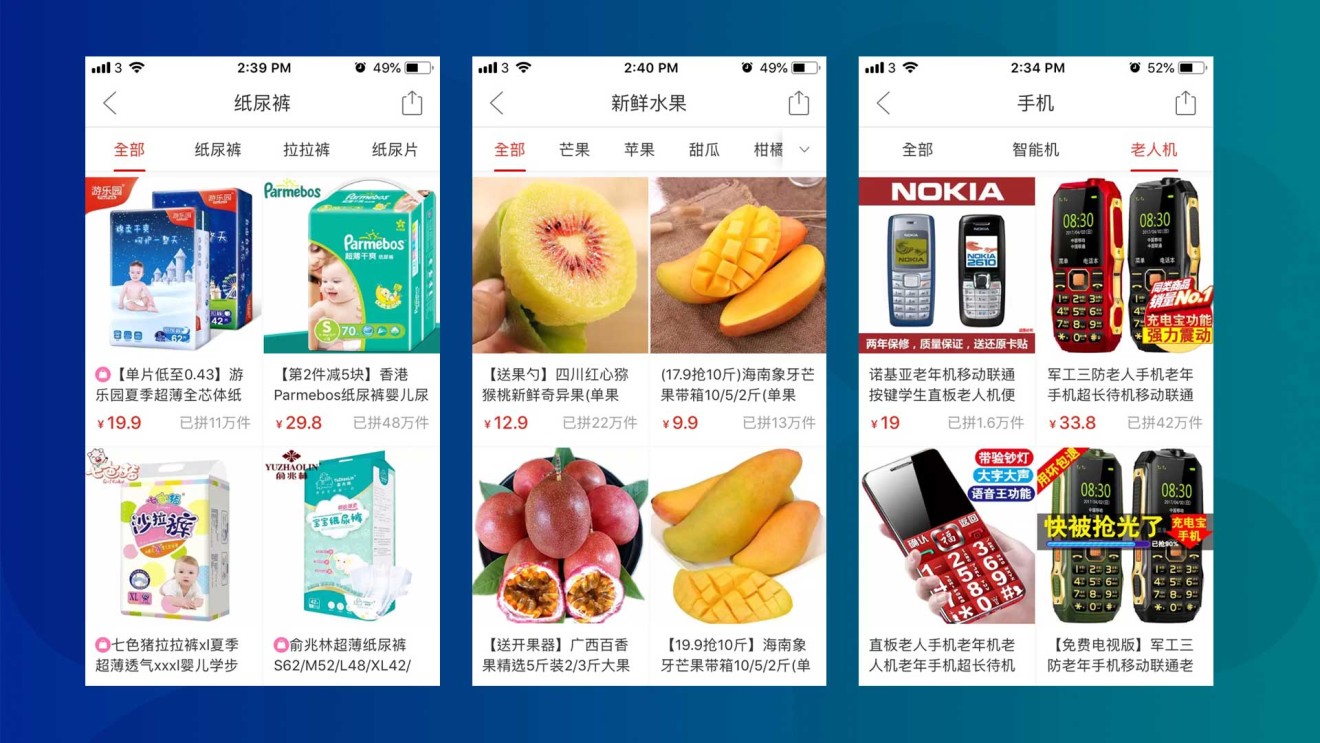
Pinduoduo 101
If Amazon, Groupon and Facebook had a baby in China, it would probably look a lot like Pinduoduo.
Its name means “shop more together” in Chinese. The idea is to turn online shopping into a social experience. But it’s more sophisticated than just showing off what you’ve bought to your friends -- being social actually delivers better prices.
Here’s how it works: You message your friends about an item you like. If they want it too, you can join together in a group purchase to get a discount. The items are then delivered individually to each of you. Everyone is happy.
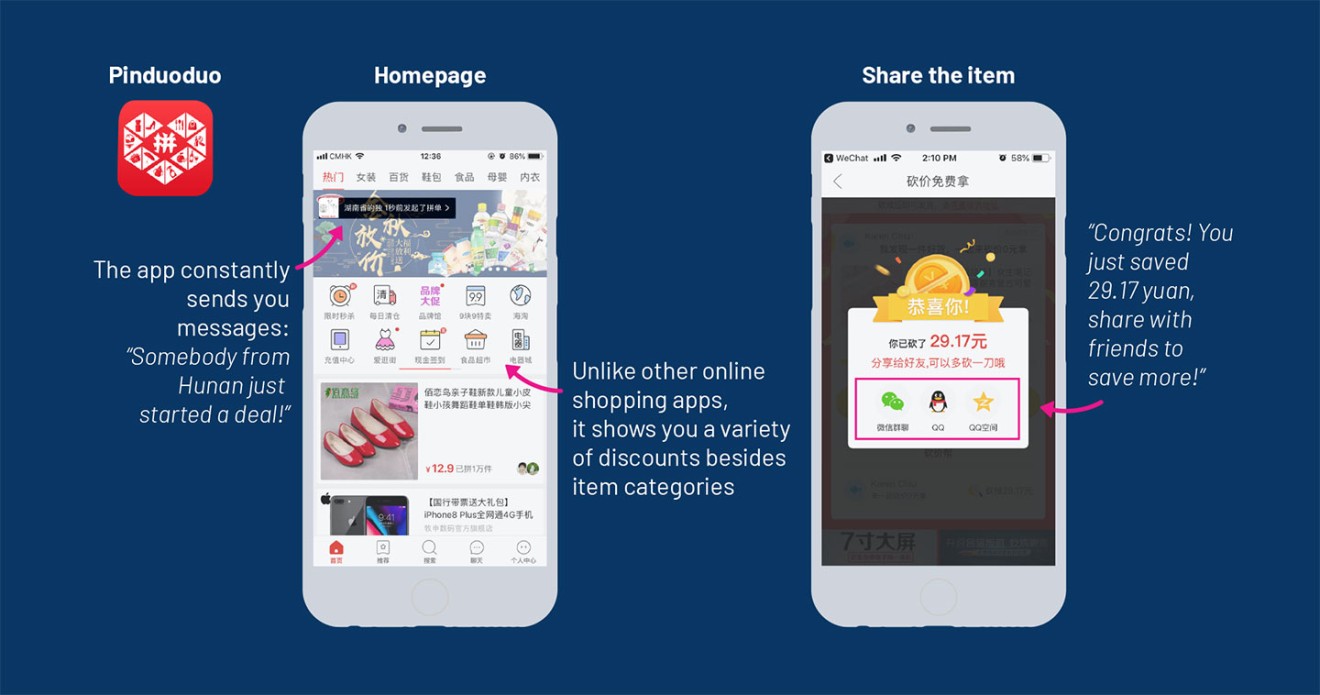
Using the app reminds me a lot of going to a wet market in China: It’s noisy, it’s crowded and you’re trying your best to get a bargain. Say you are interested in buying some garlic. They sell for 29.9 yuan (US$4.39) if you buy them on your own, or 4.9 yuan (US$0.72) if you buy them with someone else. Why would you pay more?
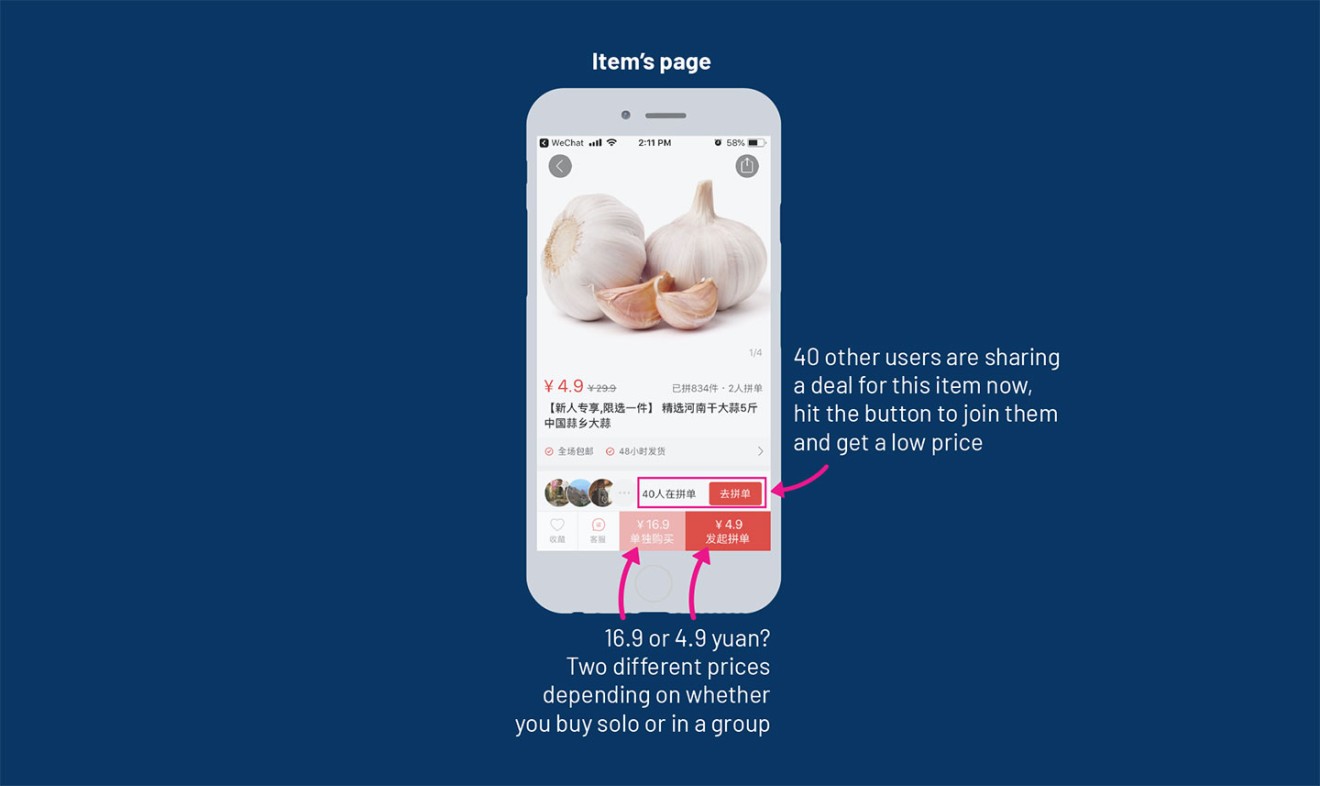
While you’re deciding whether to spend your hard-earned money -- possibly for something you didn’t even want to buy in the first place -- Pinduoduo isn’t going to leave anything to chance. Just like any eager market vendor, Pinduoduo will try to remind you what a great deal you could be getting by bombarding you with a stream of pop-up messages, showing users who have just successfully found friends to buy together with.
You can share information about a product on social apps like WeChat or QQ, inviting friends and families to join along a purchase. But if none of them are taking the bait, don’t despair. Scroll down and you can also see in real-time a list of users who are trying to find a buying partner. You can join one of them by clicking “buy together”. Alternatively, you can make a purchase on your own first and message your friends later to join in for a group deal.
Social Ecommerce
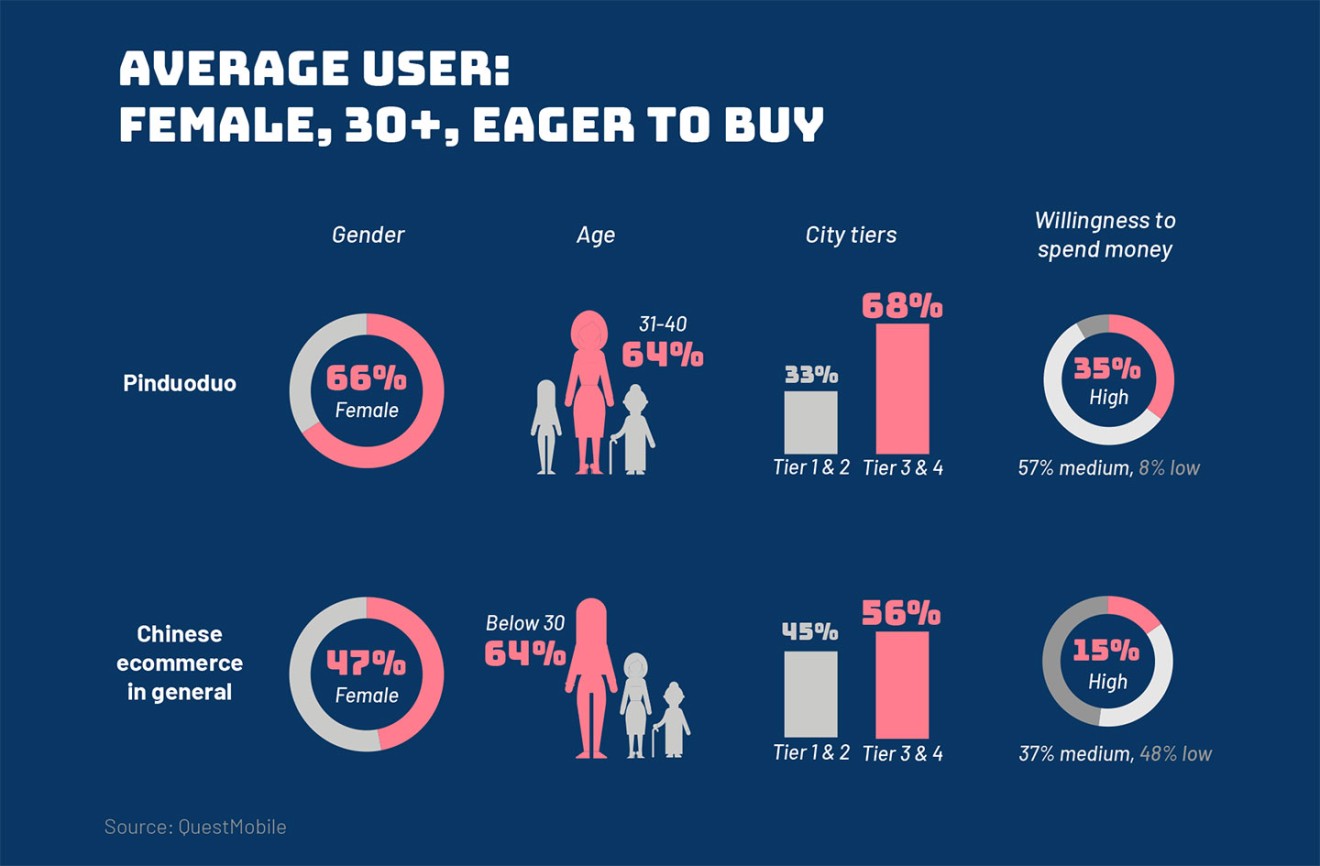
“We attract people who want value-for-money. [The typical customer] will buy a Hermès bag, and also a box of mangoes that costs 9.9 yuan. [Their shopping habit] has nothing to do with their spending power,” he said.
By turning online shopping into an entertainment, it hopes to keep customers hooked -- a model he compares to a combination of Costco and Disneyland.
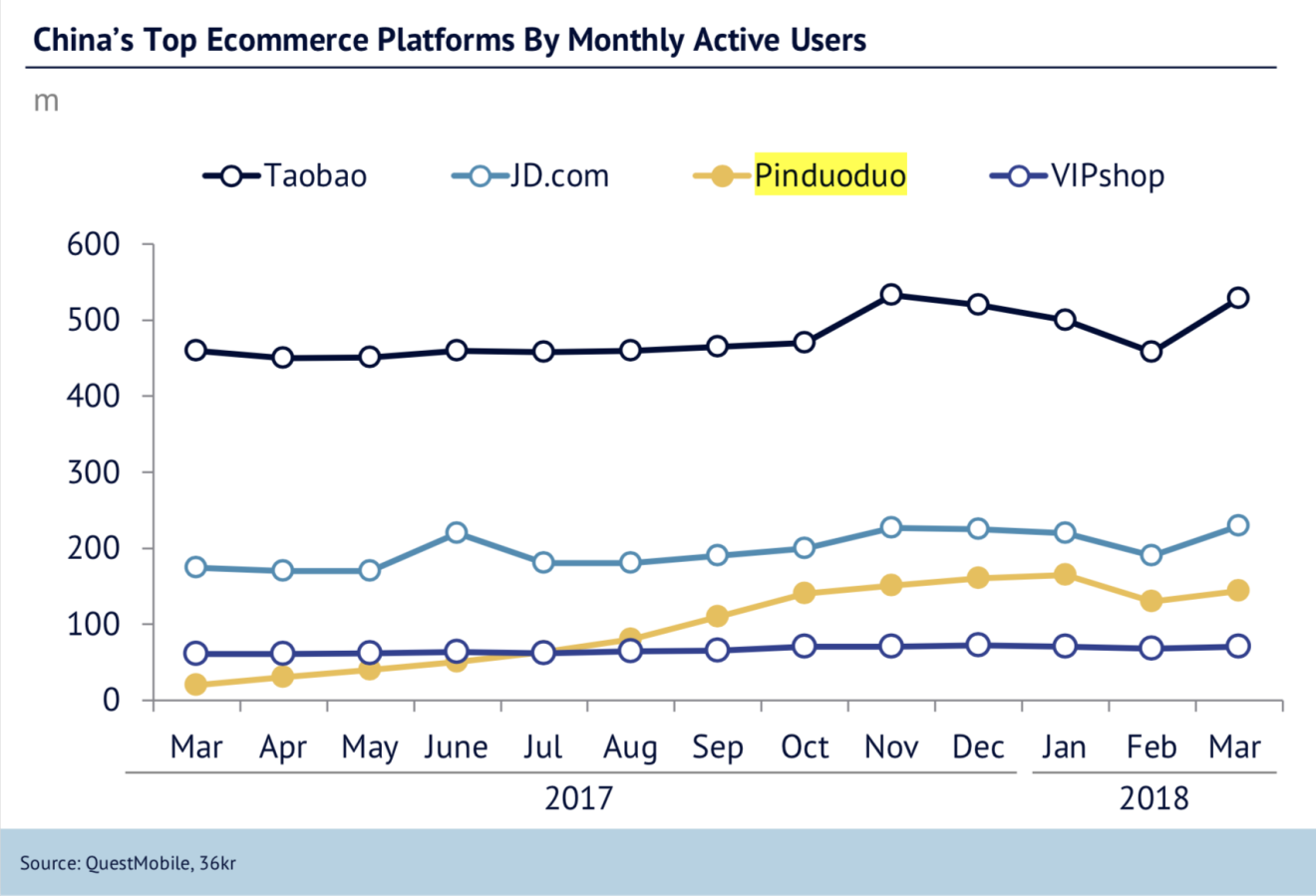
Huang believes he's creating the future of online shopping.
“If you look at the entire e-commerce market, its form is changing dramatically. The success model for Alibaba today is not necessarily the success model for tomorrow,” he wrote in 2016. “Our team are probably 20 years behind Alibaba, but I believe we might have a chance to build a different Alibaba.”
Knockoffs and fakes?
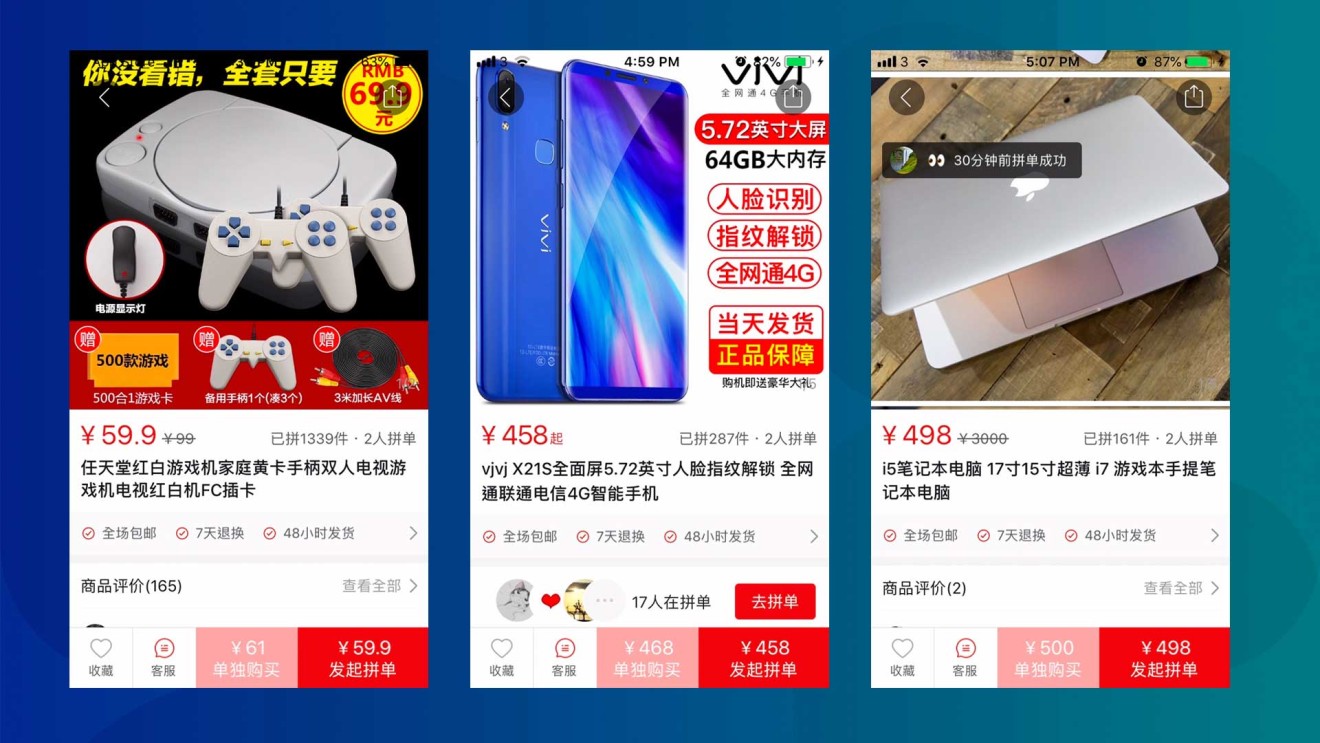
From Silicon Valley to Shanghai
After last month’s IPO, Huang’s US$13.8 fortune has made his China’s 12th richest person and among the world’s 100 richest people.
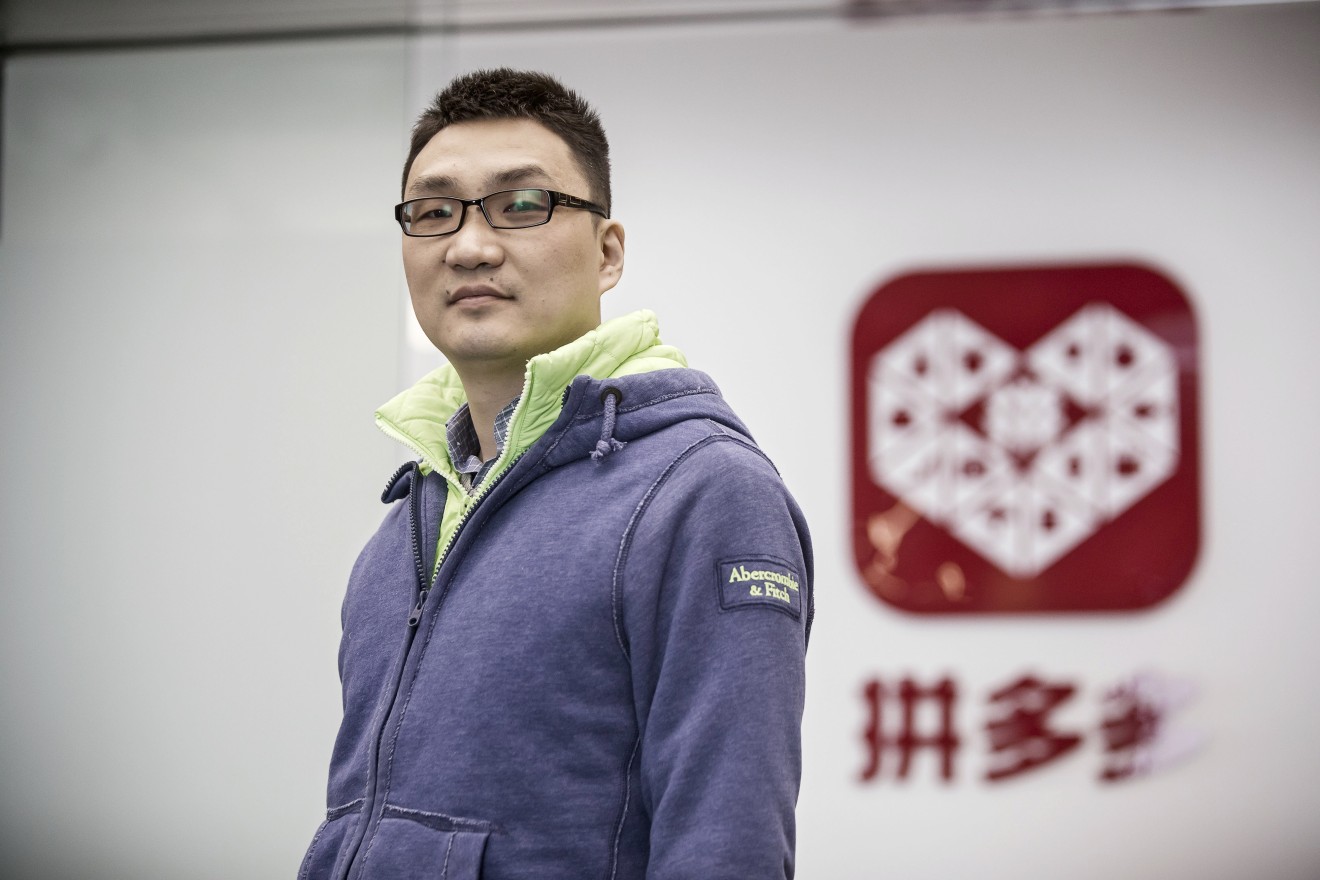
From there, Huang was admitted to an experimental gifted education program in Zhejiang University, where he enjoyed the freedom to study advanced science and engineering without picking a major in the first two years.
In 2004, after graduating from the University of Wisconsin-Madison with a master degree in computer science, he joined Google as a software engineer and later became a product manager. He returned to China two years later to help set up Google China, but after a year, left to found his first startup, an electronics e-commerce site called Ouku.com.
In 2015, he introduced Pinhaohuo -- a fruit-selling platform that adopted many of the social elements you see in Pinduoduo today. With millions of dollars under his belt, Huang launched Pinduoduo, which sells a wider range of products than Pinhaohuo. The two platforms merged the next year and retained the name of Pinduoduo.

